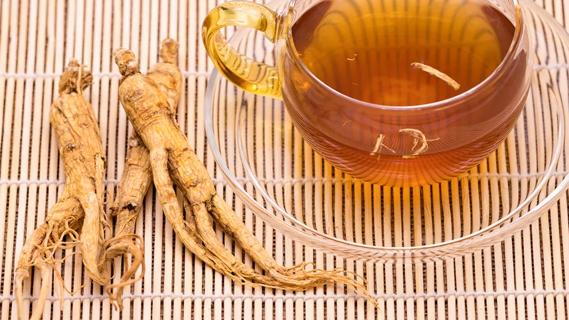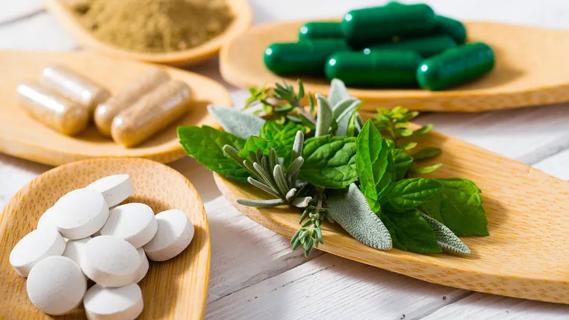Echinacea affects immunity, but won’t help you fight a cold

Echinacea has a reputation as a cold fighter and immune booster. For hundreds of years, Native Americans have used echinacea for healing various ailments, from snake bites to sore throats.
Advertisement
Cleveland Clinic is a non-profit academic medical center. Advertising on our site helps support our mission. We do not endorse non-Cleveland Clinic products or services. Policy
But will echinacea help you dodge a cold or bounce back sooner after an illness? Wellness and preventive medicine specialist Robert Saper, MD, MPH, explains what the evidence says.
Part of the daisy family, echinacea is a North American plant that bears pink or purple flowers in the summer. You might know echinacea as a “coneflower” if you’re into gardening.
Echinacea isn’t one type of plant: There are nine varieties of this wildflower.
“You’ll usually find Echinacea purpurea, E. angustifolia or E. pallida in dietary supplements or tea,” explains Dr. Saper. “These three types of echinacea have been touted as having benefits for your immune system.”
Echinacea does seem to impact the immune system, at least in the lab.
One study found that echinacea stimulates tumor necrosis factor (TNF), which is a protein that causes inflammation. “Inflammation from TNF is a helpful part of your body’s immune response,” explains Dr. Saper. “TNF helps your body fight off illnesses or heal from injuries.”
Lab studies have also found that echinacea can increase the number of white blood cells. These cells attack foreign invaders and protect you from infection.
Still, these studies don’t prove that echinacea is a remedy for what ails you. Evidence of echinacea’s immune-boosting ability comes from studies done in vitro (in a petri dish) or in animals — not in living humans.
Advertisement
“Seeing an immune effect in the lab doesn’t mean echinacea will help you fight illness or prevent you from getting sick,” says Dr. Saper. “Many other factors play a role in how your body attacks invaders and heals itself.”
If echinacea boosts the immune system, couldn’t it help when you get sick? Unfortunately, studies done on people have not shown that it will save you from the common cold.
Dr. Saper and his colleagues looked at several controlled trials where one group received a placebo and the other received echinacea.
“Researchers have conducted at least 15 controlled trials on echinacea,” Dr. Saper explains. “None of these trials found a benefit to taking the herb. The people who took echinacea didn’t get better any faster than those who took a placebo.”
What if you were around someone who was coughing and sneezing? Could echinacea help you stave off an illness?
“Many studies have looked at whether echinacea can keep you from catching a virus,” says Dr. Saper. “The results show that echinacea doesn’t help you stay healthy if you’re exposed to an illness.”
Although it doesn’t have any proven health benefits, many people still take echinacea. It ranks in the top 10 herbal supplements in the U.S.
There are different types and strengths of echinacea on the market, and it’s not regulated like medications are. These factors make it difficult to establish a safe dose. If you decide to take echinacea, follow the directions on the label and don’t take more than it says.
Most people don’t have side effects from taking echinacea, as long as you don’t take more than recommended. Like all herbs, though, echinacea isn’t right for everyone. If you have health conditions, take medications or have allergies, talk with your provider before using echinacea.
You shouldn’t take echinacea if you:
Some people swear that a cup of echinacea tea helps them sleep. But there’s no evidence to suggest that echinacea makes you drowsy.
“Drinking a cup of hot, non-caffeinated tea can have a calming effect,” says Dr. Saper. “But echinacea alone won’t make you sleepy.”
Advertisement
Many herbal teas contain multiple ingredients, some of which could create a sedative-like effect. For example, if your tea also contains valerian root or chamomile, you’re probably feeling the effects of those herbs — not the echinacea.
We’d all love a magic pill or tea that kicks a nagging cold to the curb. But until that remedy is found, rest and drink plenty of fluids while you recover from a mild virus. And to avoid a cold in the first place:
Colds and other viruses can make you feel terrible, so it’s easy to see why echinacea is a popular herb. It’s safe for most people to try, but don’t expect amazing results.
“If your provider says it’s safe, taking echinacea won’t hurt, but evidence shows that it won’t help either,” says Dr. Saper. “Get enough sleep and drink fluids when you’re sick. Those are the things your body really needs. And if you’re not feeling better within three days, contact your provider.”
Advertisement
Learn more about our editorial process.
Advertisement

Until there’s more research on it, this plant’s greatest claim to fame is its deliciousness

This adaptogenic herb can help your body respond to stress — but there’s not enough evidence to prove other claims about its benefits

This herbal medicine is said to reduce stress, ease pain and promote overall well-being, but more research is needed

Far more research is needed to support the many touted health claims

Research suggests the effect of the supplement, particularly for prostate health, may not deliver believed benefits

Two types of ginseng work in different ways to help improve energy, immunity and heart health

Besides questionable effectiveness, herbal supplements aren’t safe for everyone

Natural doesn’t mean they’re safe or effective

Wearing a scarf, adjusting your outdoor activities and following your asthma treatment plan can help limit breathing problems

Your diet in the weeks, days and hours ahead of your race can power you to the finish line

When someone guilt trips you, they’re using emotionally manipulative behavior to try to get you to act a certain way